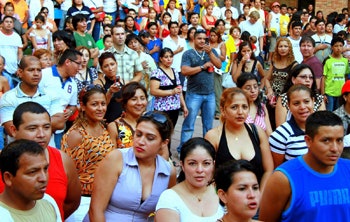Twenty years ago, I wrote “The X in La Raza,” a political essay I referred to as an “anti-book.” I did so at a time when people were beginning to write Chicano or Chicana with an X as in Xicano or Xicana.
Though “The X in La Raza” was not a response to this development, rather, it was a response to myself, an essay I had written in 1981, titled “Who declared War on the Word Chicano?”

These ideas and terms mentioned above were controversial when they first became part of the lexicon and yet again, we find ourselves with a new controversial term on the block: XicanX or the broader term: LatinX.
To be sure, issues of identity are also always fluid. For some, however, identity is fixed and not subject to change or debate.
Now getting back to the topic of “The X in La Raza,” the “X” represented Indigeneity and it was generally associated with the Nahuatl language and is pronounced with an sh sound as in shicano or shicana. Many believe the word Chicano comes from Mexicano or Mexicana, pronounced as Me-shicano or Me-shicana as the ch sound does not naturally occur in the Spanish language. One theory is that the “Me” was dropped and Chicano and Chicana remained, though again, pronounced with the sh sound, and this purportedly was used to refer to peoples that lived somewhere in the Chichimeca territories, that is, somewhere in the north, perhaps in what is today referred to as the U.S. Southwest.
When did this change occur or when does the name Chicano or Chicana first appear in writing? Not sure, though a generation ago, while doing some map research on origins and migrations, I came upon the 1562 Gutierrez map that shows a city of Chicana generally near the mouth of the Colorado River. Chances are very likely that it indeed is an Indigenous pre-Colombian name. In popular barrio lore, Chicano and Chicana were reputedly used by pa-chucos and pa-chucas on the streets in the 1930s and 1940s, this, long before it was incorporated or borrowed by activist youth in what came to be known as the Chicano/Chicana Movement of the 1960s-1970s.















